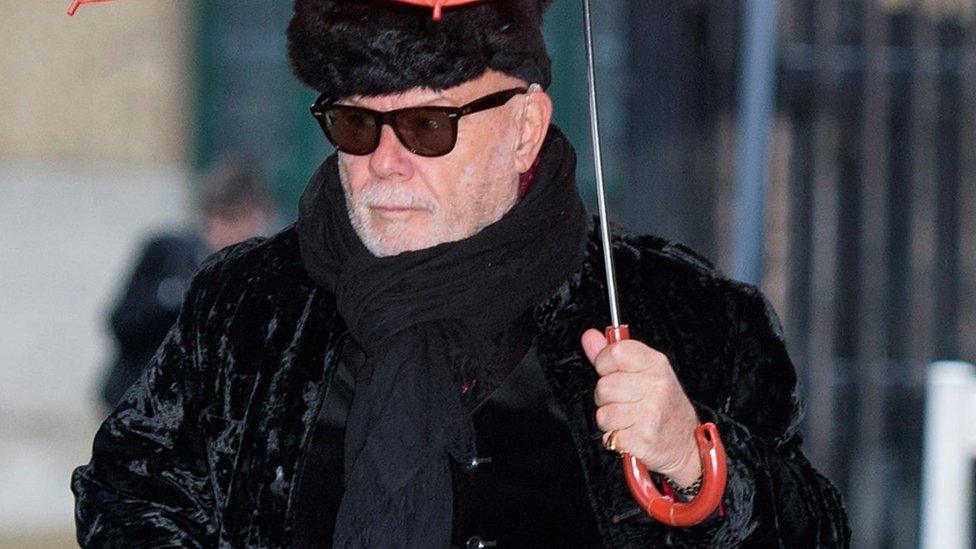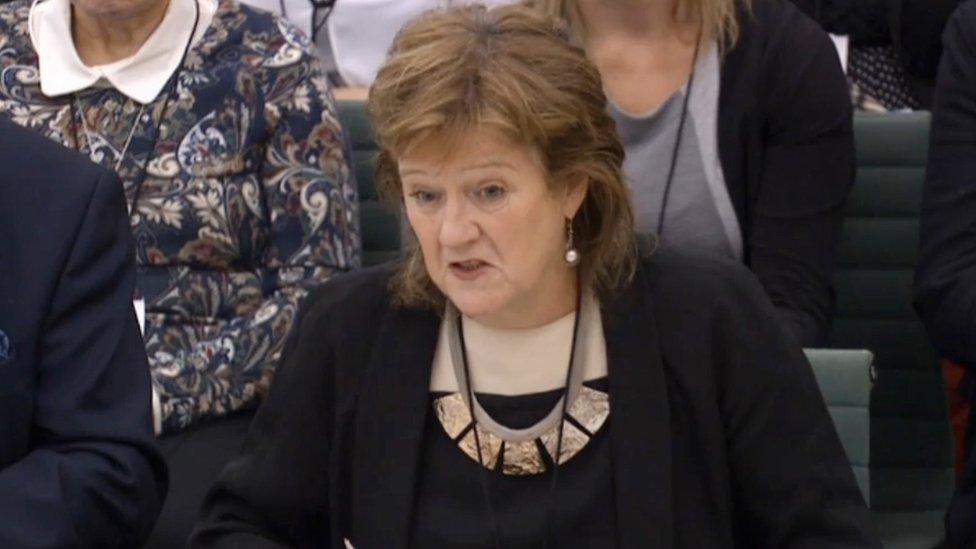Child abuse inquiry: Travel bans 'not being enforced on sex offenders'
- Published

The report cited the case of shamed rock star Gary Glitter
UK authorities are failing to use the powers they have to stop British sex offenders travelling abroad to abuse children, according to an inquiry.
Only a small fraction of orders made against offenders included a ban on foreign travel, the Independent Inquiry into Child Sexual Abuse found.
It cited the case of shamed rock star Gary Glitter, who abused children abroad after an earlier conviction.
The IICSA says the burden of proof for travel bans should be lowered.
The inquiry's report found measures applied to people convicted of a sexual offence - such as a sexual harm prevention orders (SHPO) - have only had a minimal impact on restricting foreign travel.
Other offenders have been able to breach bans in an attempt to abuse outside of the UK.
Some 5,551 SHPOs were made in 2017-18, but only 11 included requirements affecting the subject's ability to travel abroad, according to the report.
It cited the cases of Glitter and serial paedophile Richard Huckle as examples of where systems failed to protect children.
Glitter, real name Paul Gadd, was sentenced to four months' imprisonment in 1999 for possessing thousands of child abuse images.
But he was still able to later travel to Cambodia, Thailand and Vietnam. In 2005 he was convicted of sexually abusing two girls, aged 10 and 11, in Vietnam.
Glitter was jailed for 16 years in 2015 for other historical offences.
The BBC tracked down a British paedophile who breached court orders by fleeing to Bulgaria
Huckle groomed and abused scores of children in impoverished Malaysian communities by posing as a respectable Christian English teacher and philanthropist.
He was given 22 life sentences at the Old Bailey in 2016 for an unprecedented number of offences against children aged between six months and 12 years, but was killed in jail last year.
The inquiry found police and courts were being too cautious in applying travel bans, overstating the need for evidence, and were sometimes reluctant to impose a ban across multiple countries.
In contrast, the report said, Australia had a complete ban on registered sex offenders travelling abroad.
Prof Alexis Jay, chair of the IICSA, said: "The sexual abuse of children overseas by UK nationals is an urgent problem we cannot hide from.
"Current gaps in our legal system are allowing known offenders to travel abroad to target vulnerable children in less developed countries, and this is simply not acceptable."
The report also recommended the police and courts in this country prosecute more British people who have abused abroad, as they are empowered to do under section 72 of the Sexual Offences Act 2003.
The National Crime Agency has accepted that a previous policy under which foreign police forces were encouraged to investigate - rather than officers in Britain - was "not well written".
Instead, the inquiry says, the NCA now encourages British forces to engage with the country where the abuse happened.
Responding to the report, the government said: "We continue to work closely with law enforcement in the UK and international partners to stop sex offenders from travelling abroad to prey on children, close down online networks and bring offenders to justice.

Prof Alexis Jay is leading the Independent Inquiry into Child Sexual Abuse (IICSA)
"Clearly, there is more to be done and we and others will consider the findings of this report carefully. We will respond fully in due course."
- Published15 December 2019

- Published30 September 2019
